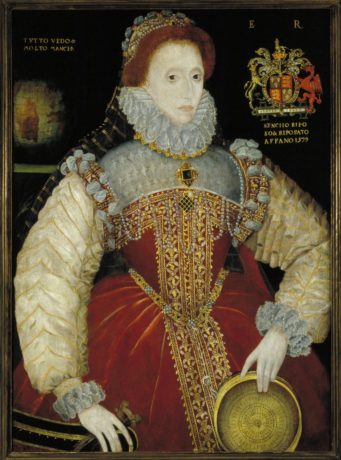Washington, DC has had a long love affair with Shakespeare. In our midst are institutions like the world-renowned Folger Shakespeare Library, and many DC-area theater companies that celebrate The Bard’s work each and every year. Taking a glance at the local 2018-19 theater season, I was able to quickly spot at least 17 productions of Shakespeare’s formidable works.

So following Cole Porter’s admonition that we “brush up” on our Shakespeare, DCMTA would like to bring our readers’ attention to an upcoming WETA-26 airing of Shakespeare Uncovered, Season 3. The series airs on Fridays, October 12-26, from 9:00-11:00 p.m. on WETA TV 26. The series will also stream on pbs.org/wnet/shakespeare-uncovered. Do check your local listings.
Shakespeare Uncovered, Season 3, will combine history, biography, performances, analysis and the personal passions of an installment’s hosts. Each host has a personal connection to the play presented. The series also includes appearances by Michael Witmore, director of the Folger Shakespeare Library.
Hosts include Helen Hunt for Much Ado About Nothing, Murray Abraham for The Merchant of Venice, Romola Garai for Measure for Measure, Brian Cox for Julius Caesar, Simon Russell Beale for The Winter’s Tale, and Sir Antony Sher for Richard III.
Interesting tidbits about each installment courtesy of PBS and WETA include:
Much Ado About Nothing is one of 13 plays that Shakespeare set in Italy, a country that was warm, sensuous and inviting for any 16th-century Englishmen writing about lovers. Claudio and Hero are the conventional lovers, too tongue-tied to speak to each other; Beatrice and Benedick are the skeptics, too busy insulting each other to realize how much they are in love. The installment explores this exquisite comedy of comparison and contrast, as well as what the ultimate “ado” about “nothing” really means.
The Merchant of Venice. Shakespeare probably never met a Jewish person. Three centuries before “The Merchant of Venice” was written, England became the first country in medieval Europe to expel its Jewish population. The installment addresses the ubiquitous anti-Semitism that characterized Europe in Shakespeare’s time. Comparing Shylock to the stock Jewish villain of the day, the episode looks at the efforts over the years to interpret him as both villain and victim.
Measure for Measure takes an astonishingly timely look at sexual morality, hypocrisy, and harassment. Shakespeare asks us to “measure” the price of liberty against the moral and social cost of libertinism. It’s a play about vice, the law and sexual corruption at the highest levels and, for nearly two centuries, it was considered too racy to be produced on the English stage. Why there is no light-hearted happy ending in this play, but something much darker and more complex – truly a sexual tale for our time will be explained.
Julius Caesar is a play that upholds liberty against tyranny. But what is tyranny? And who decides? Shakespeare doesn’t make it simple. In order to preserve the freedom of the Roman Republic, Julius Caesar, an “over-mighty” leader, is assassinated by Roman Senators led by Caesar’s friend Brutus. Caesar wanted to become an emperor. Is Brutus a traitor or a great hero and defender of liberty? Brian Cox explores how Julius Caesar, for many years, was seen to represent the American experience: the birth of a Republic. The play explores how easy it is for a free republic to fall into corruption. More than that, the play challenges us to think about who or what to trust and what values we want to live by – and to look inside and wonder how well we even know ourselves.
The Winter’s Tale was Jacobean slang for something fanciful and unreal – a campfire story. Shakespeare’s The Winter’s Tale, written during the period 1609-1611, is classified as one of his late romances. This is a play driven by passion and obsession, by the uncontrollable jealousy of King Leontes, who recklessly rejects his wife’s love and accuses her of an affair with his old friend. Acting like a man possessed, he orders his friend killed and his pregnant wife imprisoned. In 17th-century marriages, even royal ones, a wife believed guilty of adultery could indeed be brutally punished. The play’s second half, something of an idyllic comedy despite the stark and brutal first half of the play, returns the people Leontes thought he lost through one of the greatest theatrical coups of all time – a magic trick that uses no magic. In this play Shakespeare offers something for which everyone longs: to reverse time, to make amends for an irreversible mistake.
Shakespeare’s Richard III is one of the most famous villains of all time – and one of the most relished. Shakespeare created both a loathsome and brilliant manipulator, as well as a real man. Shakespeare’s history play is at least as much play as history. They hinge on character, on strength and on frailty, and explore what humans will resort to in order to achieve power. While historians still debate the merits and vices of the real King Richard, there is no truly reliable evidence that he was the villain Tudor historians described; but Shakespeare’s character is larger than life and for this reason, stands for all times.
Read further details about Shakespeare Uncovered, Series 3 on WETA-26 here.




